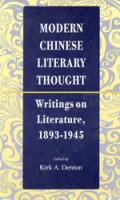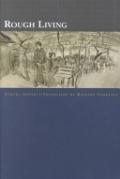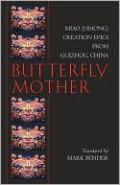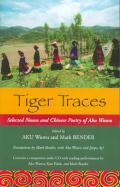Faculty Working in this Area: Mark Bender, Patricia Sieber
One of the most exciting developments in research in East Asia has been the unraveling of the nation state as the primary category of inquiry. Instead, scholars have looked at East Asia in the context of world history, in terms of the cultural flow between different regions within East Asia, and in terms of ethnic communities that
straddle national borders. Hence, transcultural studies (sometimes called transnational studies) seek to shift or break down traditional boundaries between disciplines, nations, ethnic groups, languages, literatures, and other aspects of human culture.
The cultures of East Asia are increasingly recognized as enjoining in complex processes of interaction with Eurasian cultures and other parts of the world. As for
traditional vernacular culture, myths, epic poems, folk song styles, costume, weaving, dyeing, cloth, paper production, and architecture crossed many borders within East Asia and contiguous areas in Asia. Trends in art, literature, religion, ideas, and technology spanned the Silk Road from the Mediterranean, the Middle East, India, Central Asia, China, and Korea, all the way to Japan. Later, these regions were joined by sea routes, jet planes, media and the Internet, and other conveyors of globalization.
Similarly, narratives about nation states of “China,” Japan” and Korea” are increasingly being complicated by notions of ethnicity, diaspora, and localism. Although East Asia has been historically construed as China, Japan, and Korea, these large categories immediately become problematic on closer inspection.
The People’s Republic of China recognizes 56 official ethnic groups with differing languages and cultures. China’s largest ethnic group, the Han, is actually a
conglomerate of local cultures traditionally associated with one another, yet marked by linguistic and cultural differences that are especially prominent in the southeast. The Korean peninsula is divided into the nations of North and South Korea, and Japan has distinct regional cultures and minority groups. Crossing national borders, ethnic groups such as the Mongols have communities in China and Mongolia, many ethnic Chinese live in Vietnam, Thailand, Singapore, Indonesia, and the Philippines; speakers of Tibeto-Burman languages live in partsof southwest China, Myanmar (Burma), and North-East India; communities of ethnic Koreans live in Russia and China; Miao (Hmong) people, who migrated into South-East Asia hundreds of years ago, now have populations in Minnesota and other states in the US.
Among the DEALL faculty engaged in transnational research are Patricia Sieber, who examines the intellectual discovery of circulation of books, literary canon formation, and translation practices in the context of East Asia among European scholars China and Europe in the 17th through and 19th centuries; and Mark Bender whose interests in how modern ethnic minority poets in China use tradition has extended to contemporary ethnic poets in North-East India.
Previous DEALL graduate students interested in transcultural issues include Mengjun Li, who has investigated the spread of traditional Chinese fiction into Japan and South East Asia; Levi Gibbs, Dartmouth College, the author of Song King: Connecting People, Places, and Past in Contemporary China; Tim Thurston, the University of Leeds, who is conducting a large project on culture in multi-ethnic areas of the eastern Tibetan region; Ziying You, University of Georgia (Atlanta), author of Folk Literati, Contested Tradition, and Heritage in Contemporary China: The Incense Keeps Burning and Chinese Folklore studies Today; Wenyuan Shao, Shanghai University who recently completed a dissertation on traditional Yi nationality texts from Guizhou, China; Wei Liu, Defense Languages Institute, Monterey, who recently completed a dissertation on the revival of Confucian rituals in Anhui province, China; and Peace Lee, who wrote a dissertation on ethnic Korean (Chaoxianzu) oral narratives in northeast China. Yun A. Lee (St. Louis University), who has written on translation and narrative techniques in late Qing fiction journals. Current graduate student Xuan Ye, interested in yueju, a regional opera in southeastern China's Zhejiang province.
Translation of some sort factors into and facilitates all transcultural practices. In DEALL a number of faculty (Bender, Sieber) and graduate students are actively involved in translation of written and oral literature of various cultures.






